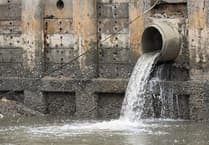It’s often said that there is nothing more certain in life than death and taxes. Given recent events in the Middle East I think we could add at least one more thing to the list: another outbreak of fighting between Israel and Hamas.
A BBC reporter was clearly a prophet then when he said a few years ago “the ceasefire is just a pause. The conflict is not just unresolved. It is not even frozen. The ceasefire will hold until it is tested by a crisis. That could be a rocket fired out of Gaza or more Israeli police violence towards Palestinians in Jerusalem”. Little did he imagine what would happen in October 2023!
Like so many others I often despair as I witness the tragic events taking place in a land that has played such a key part in the unfolding of God’s love story. But I will keep praying for peace, even though I know my prayers will not be answered until both sides learn to love their neighbours as they love themselves.
The Palestinian question is an extremely complex issue, but it seems to me that when trying to understand it we need to take account of several important things.
To begin with, contrary to much popular opinion, it is not a ‘given’ that the current state of Israel is the fulfilment of Old Testament prophecy. There are those who would say it is of course, but there are others who would argue that Jesus ‘foresaw no political future for Israel’ and ‘believed Israel’s destiny would be fulfilled in those who follow Him, of whatever race.
But whatever stance you take on this issue we need to remember that the birth of the modern state of Israel in 1948 was as a historical event and its policies and its actions should be assessed in the way we should evaluate those of any other state.
God is in control of history but is also watching to see how we treat each other.
Hamas’ latest behaviour has been appalling. Indiscriminate killing and acts of terror such as kidnapping can never be justified, and Israel has both the right and the duty to defend itself and demand the release of its hostages.
But Israel’s policies and actions need to be subject to rigorous scrutiny too which is why is there so much intense discussion about its reaction to the humanitarian situation in Gaza.
I listened with interest to a helpful listener on Radio 4’s Any Answers the other day. He suggested that ‘it is never enough to fight the mosquitoes, you also need to drain the swamp that breeds them’. There was a lot of wisdom in that observation because that is the problem with this conflict: the swamp of history.
The Jews rightly remember the horrific ways in which they have been treated over the centuries not least especially the Holocaust, while the Palestinians look back to the establishment of the state of Israel in 1948, a time they know as ‘Al Nakba’ (Arabic for catastrophe), and all that has happened since then. Sadly, far from draining the swamp current events run the danger of breeding many, many more mosquitoes.
Death and taxes; wars and rumours of wars; they’re all pretty depressing and Jesus would say completely predictable too.
But we can be sure of one thing: the day will dawn when the ‘Prince of Peace’ will return to this sad, divided world and the Old Testament prophet’s prediction will come true: ‘They will neither harm nor destroy on all my holy mountain for the earth will be full of the glory of the Lord as the waters cover the sea’ (Isaiah 11)
But as we await that much longed-for-event I think we should give thanks for those who are doing all they can to be peacemakers in our day.
This is why I am so impressed by those who live in ‘Neve Shalom’ (The Oasis of Peace), for example. This is a village of Palestinian and Jewish citizens of Israel dedicated to building justice, peace and equality and so act as a model of mutual respect and partnership.
A friend who lives there has said ‘Peace is always possible only if we accept for others what we accept for ourselves’. What do you think?




